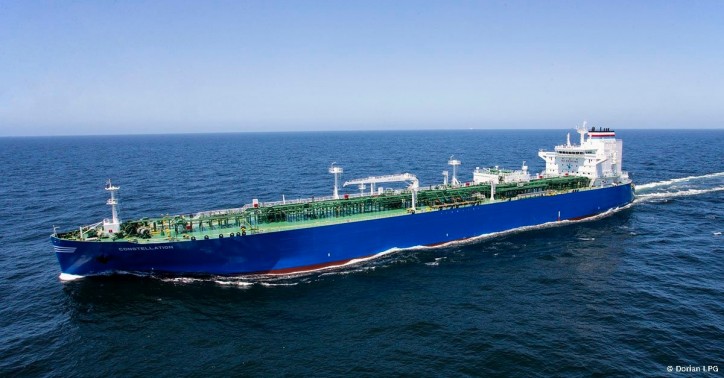ABS-developed environmental and economic models outline efficient compliance strategy for LPG as Fuel
ABS completed an in-depth techno-economic evaluation commissioned by Dorian LPG, evaluating compliance options for impending global sulfur cap requirements. Dorian LPG owns and operates a fleet of very large gas carriers (VLGCs), transporting liquefied petroleum gas around the world.

“As owners and operators evaluate their compliance options for the impending 2020 Global Sulfur Cap, it is critical to understand how each option will impact their fleet and operations,” said ABS Senior Vice President for Engineering and Technology, Derek Novak. “We worked closely with Dorian LPG throughout this evaluation to demonstrate the feasibility of applying LPG to power their fleet.”
Through this evaluation, ABS and Dorian LPG compared the economics of various fleet compliance options, including LPG as a marine fuel, installation of scrubbers and use of low-sulfur fuels. ABS and Dorian LPG performed a comprehensive LPG as fuel technical evaluation which considered current applicable regulations and potential future requirements on air emissions, design capabilities and limitations, installation and safety requirements, operating features and equipment restrictions.
“This feasibility study gave us a model to benchmark all of our compliance options, including LPG as fuel, against one-another for the best long-term compliance solution,” said Dorian LPG Chairman, CEO and President John Hadjipateras. “We believe in the viability of LPG as a fuel source and see significant advantages over other potential sources, including LNG, methanol and marine gas oil. Importantly, our VLGCs were designed to meet tomorrow’s regulations, and this study confirms the wide range of options available to Dorian LPG for obtaining compliance with impending emissions controls regulations. With the results of the ABS economic analysis and technical evaluation of LPG as fuel, we have concluded a comprehensive survey of our options.”
As owners begin to prepare for compliance with impending air emissions requirements, they must ensure they have selected solutions that best meet their fleet needs. Through its techno-economic evaluation, ABS offers guidance that provides owners and operators confidence in their compliance strategies.
Source: ABS